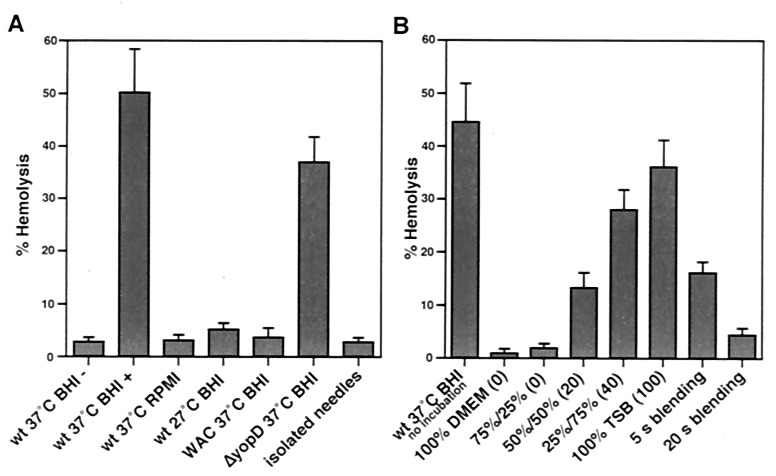Figure 2.
Analysis of the contact-dependent hemolytic activity of Y. enterocolitica. (A) The hemolytic activity of the bacteria depends on the presence of the needles and an initial centrifugation step (wt 37°C BHI−, without centrifugation vs. wt 37°C BHI+, with centrifugation). Isolated needles and bacteria that did not form needles (growth in RPMI medium 1640, at 27°C, or the plasmid-cured WA-C strain) were nonhemolytic, whereas strains possessing needles (growth at 37°C in BHI, ΔyopD mutant) induced hemolysis. (B) Yop secretion is not necessary for the induction of contact hemolysis. No difference in hemolysis was found when bacteria and RBCs were immediately resuspended without incubation at 37°C (wt 37°C BHI no incubation vs. wt 37°C BHI+). Hemolysis correlated with the number of needles present on the cells. Bacteria grown in media inducing higher numbers of needles showed higher hemolytic activity (see Fig. 6). The first number is % DMEM; the second number is % TSB; and the numbers in brackets are the numbers of needles per cell. Mechanical removal of the needles from the bacterial surface reduced or completely abolished hemolytic activity. All data show means and standard deviation of assays performed in quadruplicate.

